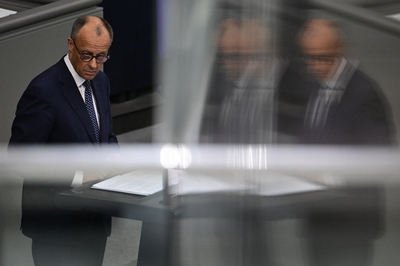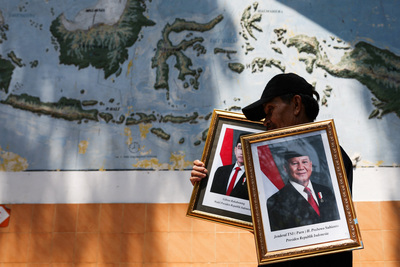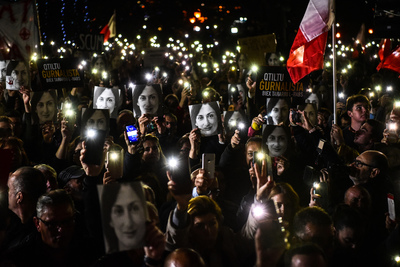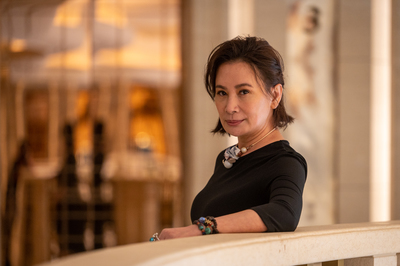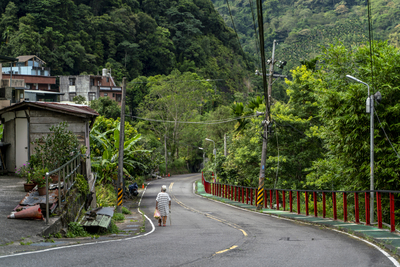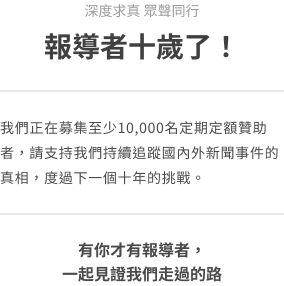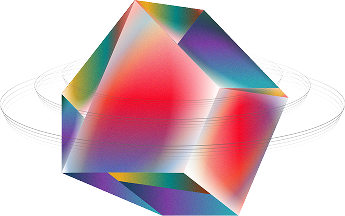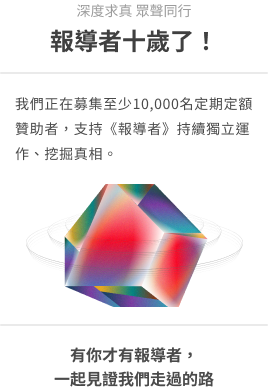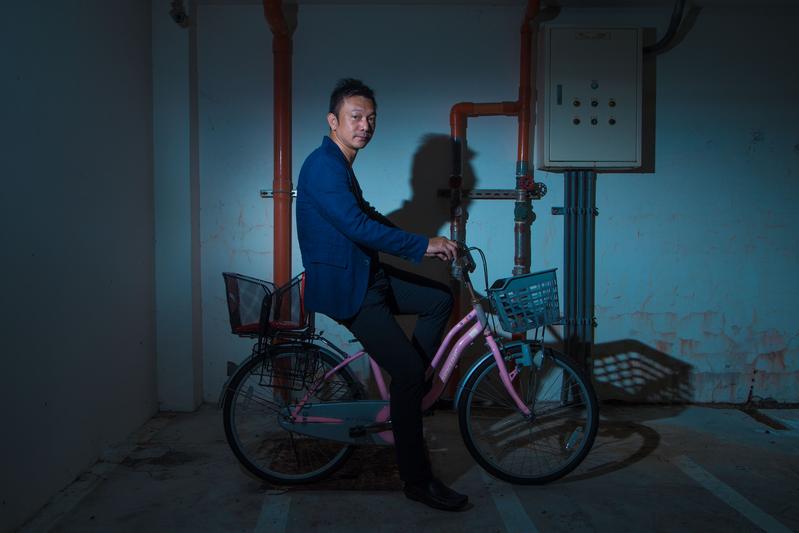
The award-winning director of the “The Great Buddha+” gives his thoughts on religion, filmmaking, and making a life plan.
In 2017, 44 year old Huang Hsin-yao (黃信堯) turned out his first feature film “The Great Buddha+”. It became the most nominated picture at the Golden Horse Awards that year, with 10 nominations.
Before being admitted to Tainan National University of the Arts (TNNUA), he had absolutely no connection with Taiwan's filmmaking circles. After putting a number of documentaries under his belt, he gained a small bit of notoriety for his 2014 Golden Horse nominated short film, “The Buddha.”
Huang's work isn't looking to compete with his peers, as his camera lens shines a light on the gloomiest of places. His work is about faith, but he doesn't stand in to offer any explanations about faith. Viewers are forced to follow the story intensely, carry a candle in their hand, and ask if their faith is misplaced.
Received awards for best director, best screenplay, best cinematographer, best original film score and best original film song at the 2017 Golden Horse Awards.
Huang Hsin-yao's early documentaries include “What The Fuck Are You Bullshitting?” (唬爛三小), “Nimbus” (帶水雲) and "Taivalu” (沈沒之島). The latter went on to win best documentary feature film at the 2011 Golden Horse Awards, and an award of $1 million NTD ($32,500 USD). In 2014, Huang's short film “The Buddha” (大佛) was nominated as best short film.
“The Great Buddha+” is his first feature-length film. It won best feature film at the Taipei International Film Festival, as well an award of $1 million NTD.
When we discuss faith with Huang Hsin-yao, he first asks us, what is our definition of faith. Whether it means religion or some broader notion, his answer is always that he hasn't given it much thought.
“I'm telling you, people are all the same, as soon as they're are poor, they don't even dare to dream,” he says.
Huang was born in 1974 and grew up in a traditional Taiwanese household with polytheistic religious beliefs, but also attended a Christian middle school. Coming of age during Taiwan’s martial law period—where the only road to success was through education—teachers only saw three kinds of students: those who could study, those who couldn't, and those with no prospects.
Since Huang did not do well in school and felt that he did not have the skills to be a good criminal, he was always put in the third category: a person without any productive capability, the kind of person who could not contribute to society.
For some reason, he was a common target of his teachers' ire when he was young.
In the fifth grade, when the school conducted a small election for class president, Huang and his classmates fooled around and cast some spoilt ballots. But because his classmates' parents were regular visitors at the school, the teacher didn't dare to act against them, and Huang became the scapegoat. Not only was he called to the front of the class to stand in punishment, he was also labeled a child who was “sure to betray the nation” in adulthood.
“I wasn't that angry, it was just that I wasn't really sure what I did wrong. All I did was cast a spoilt ballot, so why does that mean I will become a traitor?” he said.
In his youth, he seemed to always awkwardly find himself in spots of disapproval. Not long into his first year of high school, he was called into the bathroom and beaten by an older student. He was bullied throughout his next three years of school.
Was Huang angry about this? “Of course I was very angry, but you also don't know what to do, you can't just go hit people! And I didn't dare! I was basically just a pawn,” he says. With a suspicious and guarded demeanour, he accepted that it was all he could do.
“That social setting was very realistic. That is, if you don't have a privileged background, and people know you don't have that background, such as parental support, or an older student who supports you, or you don't have someone outside of school for support, then you will become a target to be bullied,” said Huang.
In the film “The Great Buddha+”, there is a line: “The rich are afraid of losing it all, the hearts of the poor need a saviour.” In Huang's view, young people pray to god and hope that they can change their lives in the future. Old people pray that god will bless their offspring and to protect the second half of their lives, or even their next lives. Those who do well ask that it may continue, and those struggling hope that their turning point is not too far off. And then, what about people who are in dire straits? Can they afford to entrust their hopes in a void?
“In fact, if you watch my documentaries, and even ‘The Great Buddha+’, there is a central thematic point, which is ‘absurdity,’” he says.
The theme arises in “What The Fuck Are You Bullshitting?”, a documentary that pokes fun at the reality of contemporary society. His next documentary “Nimbus” appears to survey an untroubled natural landscape, but is really a land undergoing subsidence.
Huang's documentary “Taivalu” (or "the island which sinks into nothing” when translated literally into English) documents life on an island which everyone says will sink into the sea, but is actually not sinking at all. When looked at backwards, the Traditional Chinese characters of the title read “the island which has not sunk.”
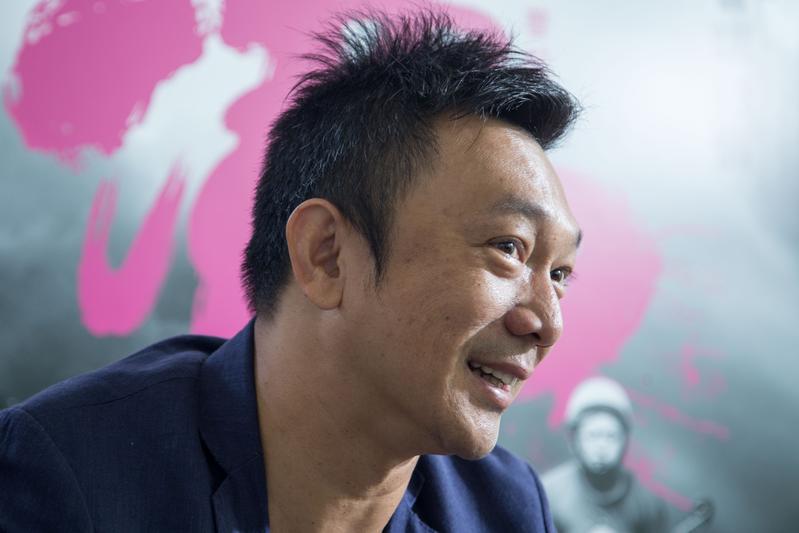
In “The Great Buddha+”, Huang maintains this quality of absurd commentary. In one scene, a scooter is suddenly revealed to be pink in the middle of a black-and-white film. Also, in an era where dashboard camera recordings can be manufactured into news, Huang uses such footage as scenes in his film.
Through the viewpoints of a set of distinct characters and the power dynamics between them, Huang pointedly narrates the line: “People with support have all that they need; people without backgrounds have nothing at all.”
Meeting disapproval throughout his youth, Huang would find himself in self-denial on many issues until an opportunity came for him to open the valve to finding self-approval.
When he was in high school, the Democratic Progressive Party (DPP) was forming as an opposition party, and the fires of Taiwan's “Tangwai movement” had begun to spread.
Huang, sixteen or seventeen at that time, rode his bike after class to listen to election speeches along with the middle-aged and elderly. He realized what he read in radical Tangwai magazines and what he learned in class were entirely different, even in their understanding of history.
An event could be interpreted very differently from what was written in Taiwan's martial law-era history textbooks. This idea revolutionized Huang's understanding. It caused him to begin to think independently, to reconsider whether reports from state-run newspapers and TV news were true or false, and changed his views on many notions he had been used to.
In college, he encountered the popular slogan “planning one's life, exploring one's potential,” and from his freshman year until his senior year, people were unceasingly stressing the importance of having a life plan, as if people were tin cans undergoing a standardized manufacturing process.
Very few would ask: how could different tin cans go through the same manufacturing process? “There was one thing that confused me at the time, which was, how does a person plan their future? How do you plan your life?” he said.
Huang did not dream big dreams, and preferred not to talk about high-level life plans which seemed out of reach. He was very practical, and preferred the honesty of clearly understanding his own abilities and doing well in what was directly in front of his eyes.
“When you have nothing, what can you do? After you graduate, you find whatever job you can, and then you go do it. And after you do it, you go ‘day-by-day’ to the extent that you can.”
Before directing films, Huang worked many jobs: as a bootleg radio operator, in social movements, in publicly traded companies, and also in some Tangwai movement activities. He never thought about “filming great movies”, and had never considered that he would become a director, or that he would direct a feature narrative film.
“You don't think about making a great film, saying this sort of thing is completely empty! It's not close to reality!” says Huang. “The only thing you can do is what's in front of your face. And as far as asking, ‘Will this movie become a good work? Or a bad work?’ That kind of fate is only decided after it is done. Okay, for example, will this film sell? Will ‘The Great Buddha+’ sell? I have no idea!”
As Huang said these words, we felt that he must not have given much thought to the future of celebratory press conferences, media gatherings and flashing magnesium bulbs which followed the announcement of the Golden Horse Award nominees.
He says his elders have told him before that “many things, when you revisit their origins, are actually total chaos.”
Huang has walked this road in his blunt style. He doesn't think too much and can only go where his intuition leads him. He saw his personal limits and realized that he was not a person who could change the world. So he followed the tides while reminding himself not to stick too closely to the waves.
This director—who recognizes the limits of his own abilities, who doesn't think about much outside of securing resources, and who learned through his years of personal experience—has always pulled the camera lens further and further away, placing a freeze frame shot on every expressway exit in life.
We asked him whether perhaps making movies is a kind of faith. He says he hadn't thought about comparing it with faith before. It's more luck he says, making films is an industry of luck. A director who hasn't thought too much or too far, who works only on the film he has in front of him, has slowly walked a long road to the present day.
That philosophy describes how he handled the news that “The Great Buddha+” received 10 Golden Horse nominations. At the time, Huang was stuck in traffic on the highway, crawling ahead at a tortoise's speed. As his phone sounded urgently with news of congratulations, he only rolled down the window to quietly smoke a cigarette, and that became his celebration.
(To read the Chinese version of this article, please click: 專訪《大佛普拉斯》導演黃信堯──人們拜佛,還是敗給虛無的寄託? )
深度求真 眾聲同行
獨立的精神,是自由思想的條件。獨立的媒體,才能守護公共領域,讓自由的討論和真相浮現。
在艱困的媒體環境,《報導者》堅持以非營利組織的模式投入公共領域的調查與深度報導。我們透過讀者的贊助支持來營運,不仰賴商業廣告置入,在獨立自主的前提下,穿梭在各項重要公共議題中。
今年是《報導者》成立十週年,請支持我們持續追蹤國內外新聞事件的真相,度過下一個十年的挑戰。

